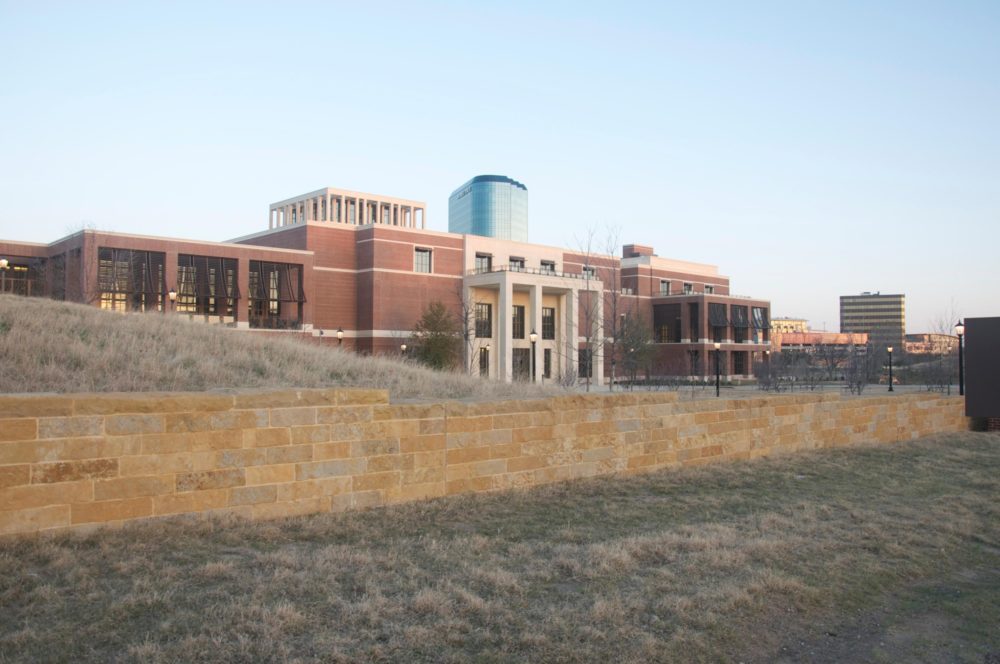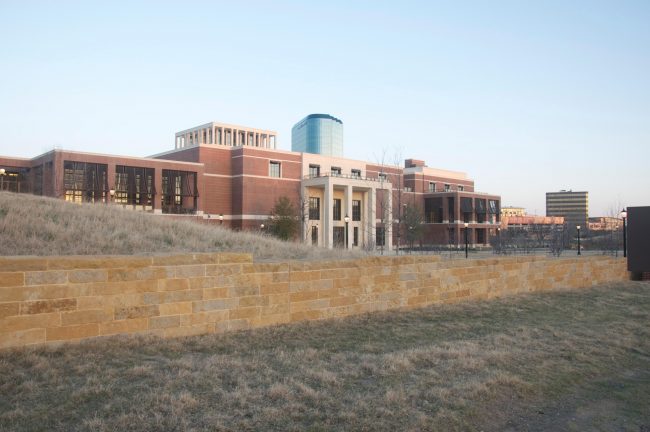
The George W. Bush Presidential Center located on SMU campus is the Bush Institute’s headquarters. (Rebecca Keay / The Daily Campus)
Throughout George W. Bush’s presidency, his administration emphasized the importance of public education in this country.
The No Child Left Behind Act was one of the first major pieces of legislation that Bush pushed through Congress, and government spending on education rose more than $300 billion from 2001 to 2008.
And if the efforts of the Bush Institute have been any indication, the former president is still going to put every foot forward towards reforming education in the U.S.
“It’s an amazing opportunity to have the support of the president and first lady,” Kerri Briggs, the Bush Institute’s director of education reform, said. “Their ultimate goal, and our ultimate goal, is just to see more kids graduate high school.”
What the institute’s research has found is that perhaps the most effective way to help these students graduate is, appropriately, to educate better principals for the schools that they’re attending.
Recent reports from The Center for the Future of Teaching and Learning say that principals can account for up to 25 percent of the school’s effectiveness in teaching students.
The Alliance to Reform Education Leadership is a Bush Institute initiative created to help redefine the role, as well as empower America’s school leaders.
And where better to help train these leaders than SMU, the school that plays home to the Bush Institute’s headquarters, the George W. Bush Presidential Center.
The Annette Caldwell Simmons School of Education and Human Development has two master’s programs for principal preparation.
One specializes in general training for instructional leaders and the other focuses specifically on urban-area principals.
The latter was introduced in 2011 by Dallas-based Teaching Trust, a non-profit organization that aims to improve the teaching capital pipeline.
In the spring of 2012, the Bush Institute became a partner with Teaching Trust, and thus, the SMU graduate program.
“We are really excited about the work that they’re doing,” Kerry Ann Moll, the director of AREL, said. “They’re about to graduate their first group of principals, and they’ve been so thoughtful in their preparation.”
And, in turn, the education school has been excited about their work with the think-tank.
“The Bush Institute gives students and faculty a chance to interact with schools from all over the world and work with some of the most challenging issues of our field, and in some cases, work towards solutions to these challenges” Dean David J. Chard said.
SMU, in association with AREL, has been working to implement their urban-centric leaders into the Dallas area.
“We are deeply invested in DISD and encouraging [DISD Superintendent] Mike Miles in his focus on principals,” Moll said.
Miles has been stressing the importance of principals since his appointment to the job in June 2012, and all the students in the Urban School Leadership Program are required to train in DISD schools.
“They may do some work in other districts, but the most significant time they spend in student teaching is in Dallas,” Chard said.
Chard acknowledges that many SMU students are unaware of the difficulties of inner-city schools.
“Many of the students from SMU come from good school backgrounds, and they don’t have much of what challenging schools look like,” Chard said. “Many have poorly-prepared teachers, disorganized systems and low graduation rates.”
But the Bush Institute doesn’t see this as a hindrance. Rather, the staff is eager to see what the education program can provide in terms of research.
“We can learn as much as we can share,” Moll said.
The Bush Institute and SMU believe their alliance can help the education system thrive, both in Dallas and around the country.
“If you don’t have citizens who can read and write and ask the right questions, it’s hard to preserve a vibrant democracy,” Chard said.












